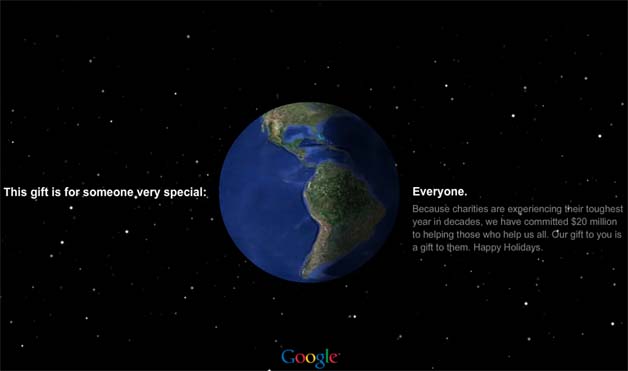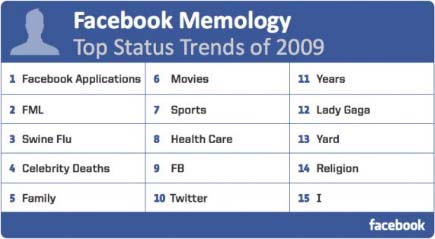The Year in Social Media: 2009
As we did last year, we have gone back through our archives and picked out some of the most noteworthy social media items we have covered since 2009 began. Now that 2009 is almost over, it was worth going back and seeing what all has happened.
If you come across missing items, please feel free to share them in the comments.
January
In January, Twitter announced that it hired Kevin Thau as Director of Mobile Business Development, and that he would be working on a variety of different fronts as Twitter's "first official business development guru." LinkedIn introduced a new Polls feature, and launched a bookmarklet for IE. MySpace Music made deals with Nettwerk Music Group, INgrooves, IRIS Distribution, and RoyaltyShare to bolster its catalog by hundreds of thousands of songs. YouTube expanded its e-commerce platform and started letting people delete their own comments. Digg launched the "People who Dugg this also Dugg" feature.
February
In February, LinkedIn launched a set of HR Tools and launched a German version. MySpace launched a mobile redesign, and Digg updated its algorithm. Facebook introduced polling ads, changed its terms of service, made some design changes to profile pages for businesses, opened its corporate blog to comments, introduced the comments box widget, and launched the "like" button. Google introduced the Social Bar and launched Friend Connect integration with Blogger.
March
In March, Twitter brought its search box to most people's Twitter home page, and changed the "replies" tab to the "@username" tab. Twitter also adjusted the title tags for member pages. Where they used to go "Twitter / username" they would now go "User's Real Name (username) on Twitter". Mahalo CEO Jason Calacanis offered to buy a spot on Twitter's Suggested Users list.
Facebook launched a redesign, started including updates from Pages in the news feed, changed pages to operate like profiles, and changed the status box to the publisher box. They launched the ability to let users chat within apps, added ad spots to Pages, relaunched Facebook Marketplace to be powered by online classified service Oodle, launched Facebook Connect for the iPhone and iPod Touch, launched some new ad targeting options, and enabled Page owners to let people sign up to become fans via text message.
Google began implementing Portable Contacts, launched the Friend Connect API, blended user-generated content into search results on Google Maps, made Google Reader more social with commenting, allowed for richer Gmail messages, and started its own Twitter accounts.
YouTube changed the name of some video sections, LinkedIn did some redesigning of its own and enhanced Direct Ads, and MySpace was stamped on a credit card.
April
Google launched an event gadget for Google Friend Connect, the Digg-like "What's Popular" gadget, and the "Get Answers" gadget for Friend Connect. Google also gave profiles vanity URLS and started putting profiles into search results.
Facebook made it easier to organize friends, opened its stream up to third-party developers, added electronic signatures for public pages, worked with the blind on accessibility, began making app recommendations, and readied its next steps in governance.
Twitter started integrating search into its interface more, and CNN showed that you can buy/sell a Twitter account. Scientists created a brain-Twitter interface.
StumbleUpon broke away from eBay and enhanced its "web stumbling." Digg launched the controversial DiggBar. Reddit launched a video site, AOL launched SocialThing, and Yahoo shifted its focus to social altogether. YouTube launched the beta version of YouTube RealTime. MySpace got some new management.
May
In May, Yahoo 360 went away, Digg dropped shouting, LinkedIn upped usability on the Action Bar, the Wall Street Journal gave its employees social media rules, and the Interactive Advertising Bureau released its social advertising best practices and social media ad metrics.
Google introduced Google Wave, launched a recommendation gadget for Friend Connect, launched comment translation for Friend Connect, and added more social features to Google Reader. Twitter launched full two-way SMS support for Telus, Virgin Moible, and Koodo Mobile, making it available on every major operator in Canda. Twitter also changed how users view replies.
Iran lifted its ban on Facebook, and Facebook rolled out real-time streams, announced an app directory overhaul, added pop-up notifications, and linked accounts with Gmail. YouTube launched a new way for brands to engage audiences, and began letting you log-in with your Google account.
June
In June, Facebook began offering keyword suggestions for advertisers, simplified the inbox, began letting users get friends' updates via text message, and launched the Live Stream Box.
YouTube launched a page for movie trailers, FriendFeed added file sharing, LinkedIn got a new CEO and updated its search tool for recruiting, MySpace cut a big chunk of its staff, StumbleUpon launched a URL shortener, and Digg started showing Digg Ads.
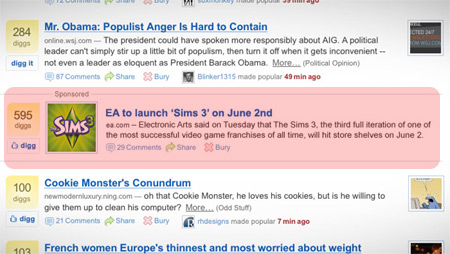
July
In July, Google launched its Facebook page, MySpace launched its email service, and LinkedIn introduced custom profiles for companies. YouTube launched its 3D experiment, doubled the size limit of uploads, and gave users the ability to share YouTube Insights stats.
A Twitter documentary was announced, and Twitter itself gave businesses a new resource and started making hashtags link. Facebook addressed privacy and photo use for ads, gave businesses a way to increase their Facebook fans, and added the ability to create events from the publisher.
August
In August, Facebook was readying a new ads manager, made subtle changes to its design, announced plans for privacy improvement, started integrating directly with Twitter, launched its own real-time search, implemented restrictions on sponsored status updates, updated open stream APIs, acquired FriendFeed, and began letting developers sell physical merchandise for virtual currency.
Twitter quietly took a step toward security, and announced plans to launch a feature that makes the service location-aware. Izea launched "Sponsored Tweets," and Tweetmeme brought analytics to retweeting.
Google reader got more social features, YouTube placed more emphasis on search and launched its own AdSense-like promoted videos. Delicious showed off new features for sharing, search, and its homepage. StumbleUpon made some big changes to its toolbar.
September
In September, Google turned the whole web into an exclusive social network with SideWiki. Yahoo launched a new contacts API, Yahoo profiles became social media profiles, and the company launched the Twitter-like Yahoo Meme in English. Microsoft added MySpace activity updates to Windows Live, and Bing announced it was readying sharing features for search results.
A sick poll was discovered on and removed from Facebook, and Facebook announced its translation plans, and that it had roughly the same amount of people as the entire U.S. population. Facebook also added tagging from status updates, and launched Facebook Lite in the U.S. and India.
MySpace Music launched in Australia, and Myspace users started being able to sync updates with Twitter. LinkedIn made profile organization easier, a record label was launched for YouTube stars, and YouTube began readying a friend-finder feature.
Pizza Hut and other brands used Twitter to help feed the hungry, Digg made changes to its nofollow policy, the Washington Post's leaked social media policy faced criticism, and real-time search engines Collecta and OneRiot launched APIs.
October
In October, Bing scored deals with Twitter and Facebook, while Google scored one with Twitter. Mozilla shared its plans for integrating social media and email into one inbox, and Twitter partnered with its first charity. LinkedIn announced that it surpassed 50 million users.
MySpace introduced new music features, StumbleUpon launched a new design with more of a search focus, YouTube got real-time search for comments, and the only known video footage of Anne Frank appeared on YouTube.
Facebook confirmed testing of a new design, made share buttons more useful, gave groups walls, tried harder to get page owners to verify, and presented new obstacles for application developers. They also launched the Create Application API.
November
In November, Google eased the retrieval of SideWiki entries for entire sites, Google Wave got a feature for following, and Google launched some new features for Google Friend Connect.
Facebook tested new design changes, and continued work on privacy changes. Facebook and Twitter both made their way into dictionaries and onto video game consoles. Twitter made geotagging tweets possible, and talked about plans which would make its suggested usres list more like Twellow's. Twitter also changed launched Twitter Lists, gave apps access to people search, rolled out the controversial retweet feature, and changed "What are you doing?" to "What's Happening?".
LinkedIn opened up its platform to developers, Yahoo began showing tweets for news results, MySpace launched new music charts, Salesforce announced its "Facebook for the enterprise," YouTube connected news outlets with citizen reporters, PayPal launched new APIs to take over mobile and social apps, Microsoft launched a big redesign of MSN, Opera launched Opera Unite, Digg launched Digg Trends.
December
In December, Google, Facebook, and YouTube all got new URL shorteners. Twitter continued expansion into new languages, and announced plans for business features. Google launched real-time search in the search results.
LinkedIn began testing a new design, and launched faceted search, Facebook began giving translators awards, adjusted privacy controls, and formed a board for online safety, MySpace launched new APIs, upgraded users' mobile experience, and acquired iMeem, Bing launched new maps with apps, and Yahoo deepened its integration with Facebook. Digg released a new version of its API. Also, the new FTC guidelines went into effect.
Wrapping Up
Of course, there has been much more that has happened over the year in social media. I think it might be close to impossible to cover every single thing. Were there things that happened that you think should have been included here? Add them in the comments. That will only serve to make the piece more comprehensive for future readers.
By Chris Crum
 in late 2006 (we dug a little deeper and found trademarks had been filed for ‘ISLATE’ in both the United States and Europe by a company that was most likely a dummy corporation set up by Apple), MacRumors
in late 2006 (we dug a little deeper and found trademarks had been filed for ‘ISLATE’ in both the United States and Europe by a company that was most likely a dummy corporation set up by Apple), MacRumors has now discovered another possible name for the upcoming Apple tablet.
has now discovered another possible name for the upcoming Apple tablet. .
. back in 1997 and led by a Brian Noon
back in 1997 and led by a Brian Noon from 2002 to 2006, when the company was sold.
from 2002 to 2006, when the company was sold. ) in the United States: a principal and a service mark, both on 18 December 2007. The description of goods and services given to iGuide Media is very similar to the one given to Slate Computing, the supposed shell company set up by Apple used to register the trademark for ‘ISLATE’, although it leans a bit more to a focus on software and services than hardware.
) in the United States: a principal and a service mark, both on 18 December 2007. The description of goods and services given to iGuide Media is very similar to the one given to Slate Computing, the supposed shell company set up by Apple used to register the trademark for ‘ISLATE’, although it leans a bit more to a focus on software and services than hardware. for ‘iguide’ and you find a trademark filing that has all the Apple marks on it: the legal representative is ‘EDWARDS ANGELL PALMER & DODGE UK LLP’ (the same as for ‘ISLATE’ and ‘MACBOOK’, among others), and the priority country is Trinidad & Tobago, the same as when Apple filed for the ‘iphone’ trademark in Europe.
for ‘iguide’ and you find a trademark filing that has all the Apple marks on it: the legal representative is ‘EDWARDS ANGELL PALMER & DODGE UK LLP’ (the same as for ‘ISLATE’ and ‘MACBOOK’, among others), and the priority country is Trinidad & Tobago, the same as when Apple filed for the ‘iphone’ trademark in Europe. of an ‘Apple slate’ device in a past speech
of an ‘Apple slate’ device in a past speech , the ‘ISLATE’ trademark application was extended a second time last September, to show use in commerce
, the ‘ISLATE’ trademark application was extended a second time last September, to show use in commerce

 Motorola
Motorola  RIAA/MPAA
RIAA/MPAA  AOL
AOL 
![Screen shot 2009-12-29 at [ December 29 ] 9.13.12 PM](http://www.mobilecrunch.com/wp-content/uploads/2009/12/Screen-shot-2009-12-29-at-December-29-9.13.12-PM-150x150.png)
![Screen shot 2009-12-29 at [ December 29 ] 9.13.04 PM](http://www.mobilecrunch.com/wp-content/uploads/2009/12/Screen-shot-2009-12-29-at-December-29-9.13.04-PM-150x150.png)



 "We are grateful to our customers for making Kindle the most gifted item ever in our history," said Jeff Bezos, founder and CEO of
"We are grateful to our customers for making Kindle the most gifted item ever in our history," said Jeff Bezos, founder and CEO of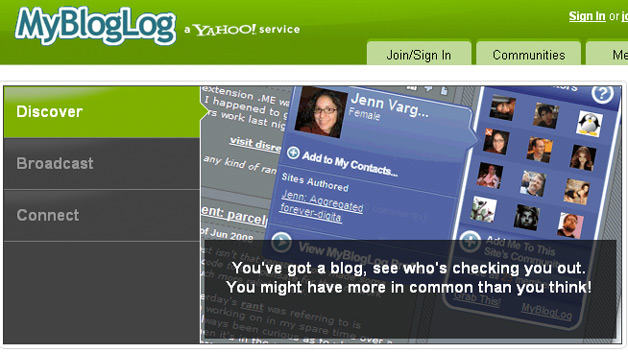
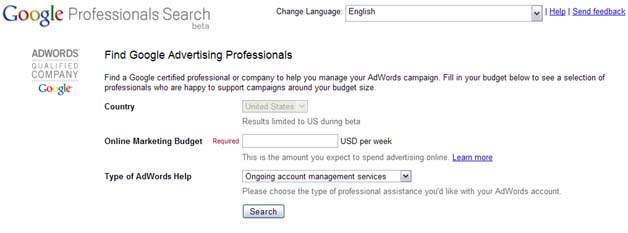

 Anyway, Lorrie Norrington, the president of eBay marketplaces, concluded, "Mobile is changing the way people shop this holiday season. . . . eBay buyers and sellers have rapidly embraced mobile commerce this year, and this holiday season has been a mobile commerce tipping point. Shopping will never be the same again."
Anyway, Lorrie Norrington, the president of eBay marketplaces, concluded, "Mobile is changing the way people shop this holiday season. . . . eBay buyers and sellers have rapidly embraced mobile commerce this year, and this holiday season has been a mobile commerce tipping point. Shopping will never be the same again."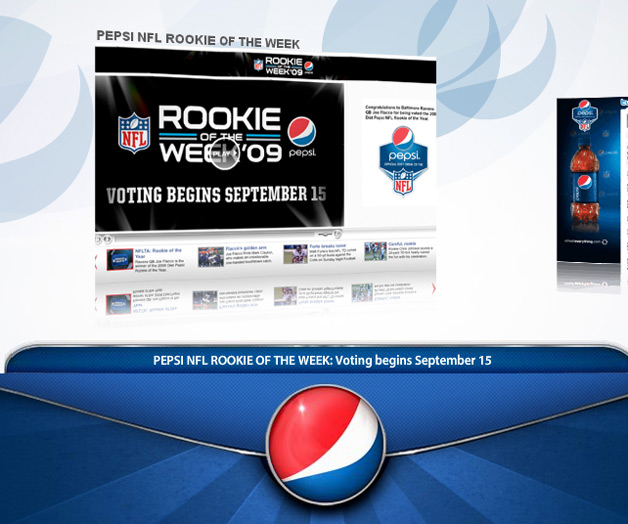

 Word of this short-term goal comes via the
Word of this short-term goal comes via the  For better or for worse, this development doesn't signal Google's entry into the candy/baked goods market. The site will play home to all sorts of retail and office space when a renovation is completed, and Google will set up its two floors (the top two in the building) as a fairly standard workplace.
For better or for worse, this development doesn't signal Google's entry into the candy/baked goods market. The site will play home to all sorts of retail and office space when a renovation is completed, and Google will set up its two floors (the top two in the building) as a fairly standard workplace.